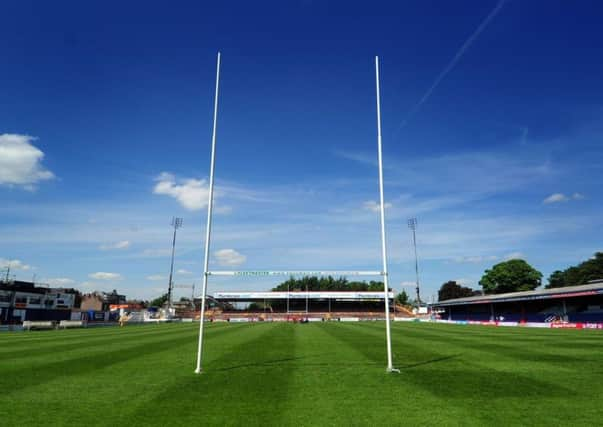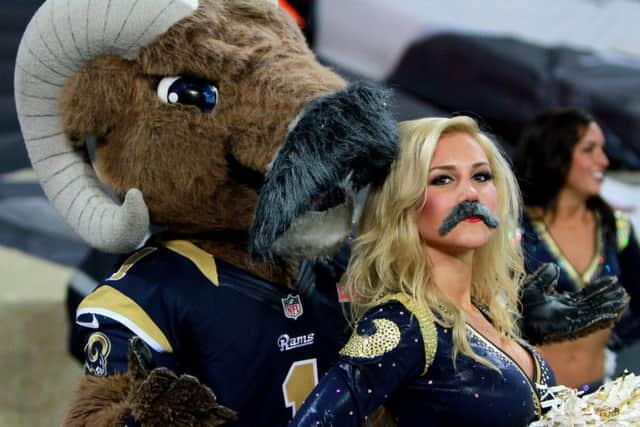Nick Westby: Lessons to learn from across the pond to save short-changing fans


Whether that be in rising ticket prices, the constant relaunching of kits or the increase in the number of sports that are no longer available on free-to-air television – the regular person in the street is forever getting squeezed.
It is understandable, of course, and from the sporting bodies and clubs themselves, it makes good business sense. While ever there is a huge market for their product, why not make as much money out of it as possible?
Advertisement
Hide AdAdvertisement
Hide AdBut one day you wonder if there will come a collective breaking point when the lifeblood of what makes sport so rich turns round and says: ‘you know what, enough is enough’.
There is one element that could trigger such a scenario more than spiralling ticket costs and the latest away kit six months after the last one – and that is sports clubs and institutions beloved in local communities being sold to the highest bidder.
The excellent work by The Yorkshire Post’s rugby league correspondent Dave Craven last week in revealing that Wakefield Trinity would not be adverse to selling their Super League licence and moving out of town sent shockwaves across the sport. That it had been discussed at an earlier meeting of the Super League clubs, some of whom may consider it down the line, should be of a great concern to supporters of rugby league teams in the elite division.
Rugby league has always attempted to broaden its horizons beyond its heartlands along the M62 corridor, nobly so in most cases, but allowing this to happen would be the biggest show of disrespect yet to the fans that keep the sport going.
Advertisement
Hide AdAdvertisement
Hide AdBecause once one club leads the way, others will no doubt follow.


Purely hypothetical, but if Wakefield Trinity’s board decide the offer of £2m from Toulouse is too good to turn down, and a storied name in the sport is told to go back down the leagues and start again, then what do you think will happen when Toronto Wolfpack wave £3m under the noses of Widnes Vikings for their Super League licence?
Decisions will be made at boardroom level without the consultation of the fans of those long-standing pillars of the community, who will then be left devastated at the loss of a beacon for which they have an unconditional love.
Those supporters will be left disenfranchised.
This notion of franchises for sale is not new, nor is it restricted to just rugby league. Across the codes, London Wasps now play in Coventry because there was a stadium to house them 100 miles north.
Advertisement
Hide AdAdvertisement
Hide Ad

There are fewer parallels in football – only once has it happened in living memory, and two decades on MK Dons still strive for respect while the name of Wimbledon lives on in people’s hearts.
For a greater indication of what may happen in Super League once one domino falls, a glance should be cast across the pond.
The four major sports in the USA are littered with stories of teams uprooting from one city and relocating to another. It tends to be cyclical across the National Football League, National Basketball Association, Major League Baseball and the National Hockey League.
For instance, the status quo of 32 ‘franchises’ remained intact across the NFL for a good number of years up until 14 months ago. The departure of the Rams from St Louis to Los Angeles was the first team move of three in a little over a year.
Advertisement
Hide AdAdvertisement
Hide AdTwelve months after the Rams moved into one of the biggest media markets in America, the San Diego Chargers followed suit and relocated what for decades has been a proud upstart of a franchise to the City of Angels.
And then just this week, one of the most recognisable and marketable names in all of American sports – the Raiders – was granted approval by the league to swap Oakland for Las Vegas before the end of the decade. It is the third time in 35 years that the Raiders have moved and the second time they have left Oakland behind.
On each occasion it is because they could not get a better stadium built in their home city, either by a wealthy investor or public money.
On each occasion, the fans’ loyalty and sway in the matter was taken for granted and ignored. Emotional pull and historic ties are quickly overpowered by a fistful of dollars.
Advertisement
Hide AdAdvertisement
Hide AdThe Rams and the Chargers moved to LA for the same reason; because new stadiums would not be built in current cities, and another suitor promised them a house fit for a king.
For decades Trinity have tried to convince Wakefield city council they would fill a new community stadium, while their traditional home of Belle Vue grew old around them.
If they are to move, the lack of a state-of-the-art home in the city that gave them life will be a major reason.
If they are to move, what becomes of the fans who love them so dearly?